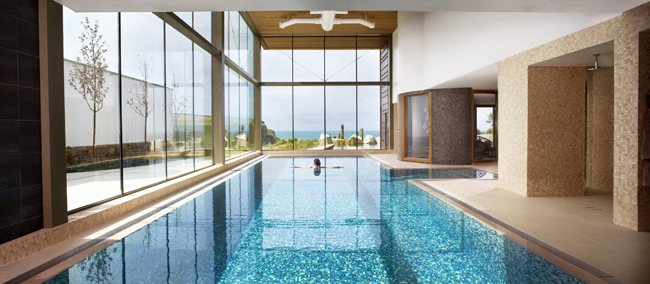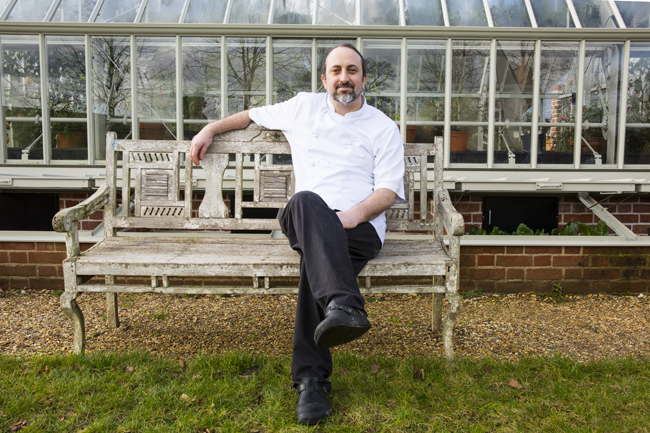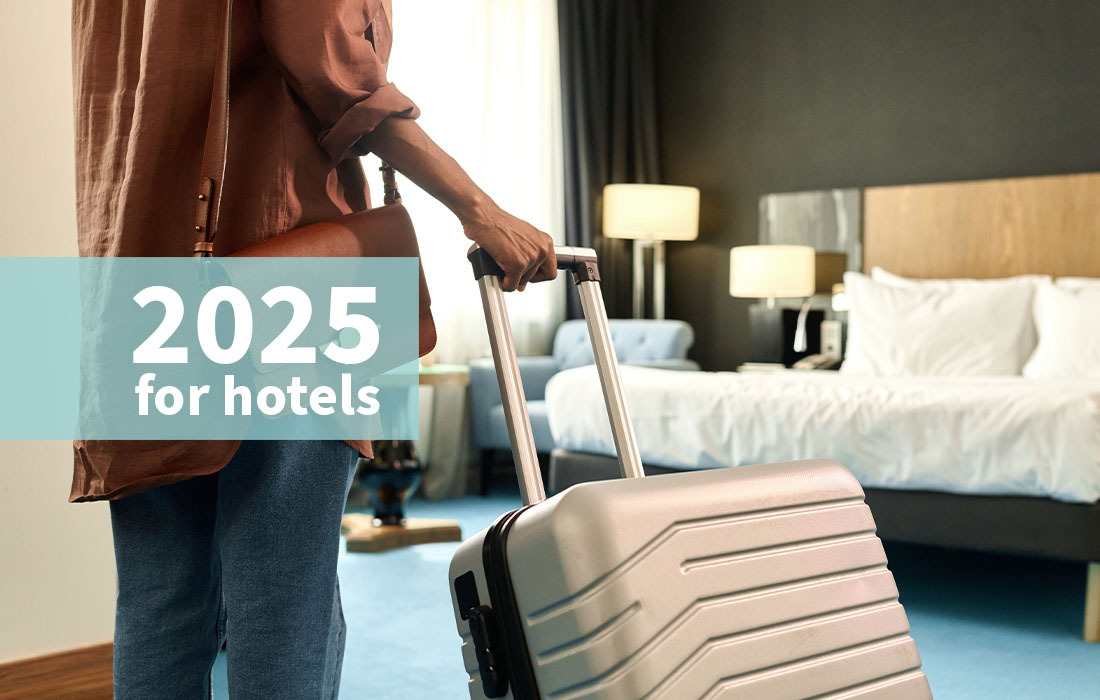Flexible thinking: The employers offering a better work-life balance
All work and no play leads to employees feeling stressed and anxious, with low productivity and high absence levels. So what practical steps can employers take to give their staff their personal lives back? Rosalind Mullen reports
The issue of recruitment and staff retention haunts every manager in hospitality. But while good employers are paying attention to offering their staff competitive pay and career development to keep talent onside, excellent employers are going one step further by bringing in work-life balance policies.
State of the Global Workplace report in 2017, highly engaged businesses generate three times more revenue than others, while unhappy workers are costing the UK economy an estimated £85b a year. The report says a major reason for this low level of satisfaction is that companies are often slow to adapt to the new connected world, the gig economy and the expectations of younger workers.
No more nine to five
Jo Harley, managing director of employee engagement consultancy Purple Cubed, agrees that flexibility is crucial. âItâs critical to use the talented people who may be working in this industry as their second job,â she says. âHospitality businesses need to recognise these people through regular job chats and help them get to where they want to be while helping you grow your business. Treat people as the individuals they are rather than expecting everyone to follow the same trajectory.â
As well as younger generations demanding a less stressful, healthier lifestyle, todayâs employees have competing responsibilities, such as childcare, caring for elderly relatives, further education or religious observances. In short, businesses that take a holistic approach will attract and retain the best talent.
Harley cites Firmdale Hotels, awarded the Best Employer in Hospitality Catey in 2017, as a good example. âFirmdale Hotels ensures that its people are treated as individuals and communicated to in an adult-to-adult manner. They know what their career path looks like, are equipped with the development support they need to prosper and are given the opportunity to partake in social and fun activities that arenât work-related,â says Harley. âIf you give people the freedom to be themselves and the control to dictate when they would like to work through self-scheduling or easy shift-swapping, theyâre far more likely to stay.â
Healthy mind, healthy body
They are also less likely to fall ill. The Mental Health Foundation says that one in six of us are currently experiencing mental health issues and that work-related stress is costing Britain 10.4 million working days a year. According to its survey, 27% of employees who work long hours feel depressed, 34% feel anxious, and 58% feel irritable. This canât be good if you are running a hospitality business where upbeat, resourceful staff are vital to your success.
As Alison Gilbert, group human resources director at CH&Co Group, says: âA good work-life balance is imperative for getting the best out of teams and retaining a happy, motivated workforce. Modern working life is busier than ever. The instant communication that social media and technology create has blurred the lines between working and personal lives. Itâs vital that employers put in place agile working systems and processes to enable teams to navigate these pressures and get the balance between their work and personal time right. Through flexible working practices that give our teams choice â" whether thatâs the place they work or the structure of their day â" we are building a culture of trust that benefits both employees and the business.â
Time to talk
One way to test whether work-life balance issues are affecting your staff is to conduct an engagement survey â" through one-to-one chats, or an online or paper survey. Flexible working and job-sharing are two ways you can help those with, say, family commitments. But while regulations such as the maternity and paternity laws and the working time regulations lay down some requirements, it is up to employers to grasp the benefits of a comprehensive work-life balance and ensure it is in place.
Many employers are doing this well and, as the case studies here show, if you take a creative leap to give your staff their lives back, you will be rewarded with greater loyalty and commitment, and your teams will be more confident, focused and productive at work â" and be more likely to want to stay and develop their career in the hospitality and catering industry.
How to create a work-life balance for your team
â¢Â Create openness so that employees can speak up if they feel they have an unrealistic workload
â¢Â Train your managers so that they can spot stress and poor work-life balance and give them tools to develop better systems
â¢Â Identify elements of practice, policy or culture in your company that may be detracting from a healthy work-life balance
â¢Â Consider using an electronic time and attendance system to monitor long working hours
â¢Â Regularly monitor performance indicators, such as sickness, absence and staff satisfaction
â¢Â Allow staff to attend counselling and support services during working hours, as they would for other medical appointments, and consider providing a confidential helpline
â¢Â Encourage activities that promote health â" for example, lunchtime exercise or relaxation classes
â¢Â Be open to job-shares and flexible working
â¢Â Provide rotas weeks or months in advance so staff can plan their lives
â¢Â If staff work long hours, offer them a shorter working week or regular three-day weekends
â¢Â Understand the different pressures of each department and draw up rotas that ensure staff get adequate rest
â¢Â Treat people as individuals.
Red Hotels: part-time roles and surfing breaks for staff
At Red Hotelsâ two Cornish properties in Mawgan Porth, the Scarlet and Bedruthan hotels, the philosophy of its owners â" sisters Emma Stratton, Debbie Wakefield and Rebecca Whittington â" is that employees should enjoy life inside and outside work.
At the luxury eco-hotel the Scarlet, the management team assess the particular challenges of each department. In the spa, therapists are encouraged to work part time, because giving massages and treatments is physical work â" and can be emotional, too. This enables them to pursue their interests outside of work and look after their own well-being.
Hotel manager Meeche Hudd adds that night hosts work four shifts on and four off. âWhile it doesnât work for all roles, it works well for them. We adopted the idea from the fire services, where [firefighters work] four long nights and then have down-time to recover, sleep and enjoy some time off.â
Other initiatives reflect those of progressive employers. Hudd explains: âWhere possible we ensure our food and beverage team doesnât work too many split shifts. It isnât sustainable to their well-being, and by giving them rotas with a maximum of two splits a week and two weeks in advance, they can plan. This is something I feel very strongly about. I write rotas six weeks in advance and push for my teams to take holiday throughout the year.â
The 37-bedroom adult-only hotel has a fabulous beach location, but itâs not just the guests who get to enjoy it. Hudd says: âWe designed the staff area with a wet room so that the team are able to go surfing in their break. They can use the hotel facilities and join in well-being classes in the mornings.â
Hudd acknowledges that the practicalities of running the hotel mean that it is not always easy to ensure these practices happen all of the time, but she adds: âI do feel that this is something that is driven by the owners of the hotel and that itâs something we all have a desire to achieve and improve on all the time.â
Lime Wood: life-enhancing rotas and three-day weeks
Back in 2015, Luke Holder, co-head chef at Lime Woodâs Hartnett Holder & Co restaurant, was struggling with 100% annual staff turnover in his kitchen. Three years later, that has all changed. Indeed, the implementation of a few bold work-life initiatives means only five chefs out of a total brigade of 30 left last year.
Holder initiated his new approach at the hotel in Lyndhurst, Hampshire, with the launch of a three-and-a-half-day working week and rotas drawn up two weeks in advance. Now, he draws up rotas three months in advance, and holidays â" with the exception of five days â" are planned a year ahead. Staff are also encouraged to take a break every three months so they donât burn out.
Some managers may feel that is risky enough, but Holder has gone further again. He finds that by asking each person which days off suit them best, he can keep the majority happier. âNot all will say Friday and Saturday. Itâs amazing the other commitments that people have. They might want Monday off because their son plays football that day.â
Lime Woodâs kitchen policy has been introduced with the support of the hotelâs directors and co-head chef Angela Hartnett.
âIt has had a massive effect,â says Holder. âThe chefs still work a 50-hour week, with days from 8am to midnight, but they are motivated for it. They come in and work hard, but they have a work-life balance. It has had a massive impact on morale.â
He looks back at the way kitchens used to operate with horror. âPeople took advantage of young workers before. You donât need to sacrifice other areas of your life to produce great food.â
He adds: âWhatâs important to young people today is different. Employers think they are not as hard-working as we were, but that is wrong. I think they are willing to work, but not to give up their life. The industry is on its knees when it comes to staff. We are out of sync with other industries on hours, pay, holidays and so on. We ask them to sign away the working-time directive.â
Holder also claws back some home-time. âI go home early on a Friday and Saturday. At one point, I was only seeing my kids from 8am to bedtime on a Sunday and 4pm to 8pm on a Monday.â
The system has many upsides. It can take Holder a day to write the rota, but he points out that he only has to do it four times a year. The long lead-in also helps at Christmas, which he describes as an emotional time of year. âStaff can now see what time they have off and plan to see friends and family around that. I couldnât sing the praises of it more,â he says.
âThe way we engage with the team and the way I engage with the business has improved because we think further out. When I started working, it was miserable waiting for the rota. Kids are not up for that today. To be a successful employer you need to recognise the most attractive values for incoming staff.â
Holderâs management style also ensures he is a million miles away from the âridiculousâ, âscaryâ, âunapproachableâ head chef of the past. Instead, he tries to be open and engage with the team. As a result, he has discovered that one chef is happier to work weekends because she wants to see her boyfriend on other days. âMany arenât used to that. It is the ultimate flexitime. We have 21 shifts a week, so there are lots of opportunities when they can tell me when they want to work.â
While the forward-planning of holidays can bring problems â" two people can move sections and end up with clashing holidays â" better communication has provided the solution. Holder simply asks the brigade to help by working an extra shift that week to cover both colleagues. âIt creates a feeling of unity,â he says. âThere is goodwill in the bank and they become better performers.â
Hand Picked Hotels: job sharing and 24/7 support
With 20 luxury country house hotels in its portfolio, staff retention and development is crucial to Hand Picked Hotels. Happily, it has the HR muscle in place to devise a holistic strategy that includes nurturing a healthy work-life balance.
Operations director Douglas Waddell explains: âHand Picked Hotels is nothing without our people, and the welfare and well-being of those who work with us is a key part of our overall HR strategy. It goes without saying that it makes them more productive if we listen to their needs and encourage a good balance between time at work and free time.â
Waddell is also looking to trial a four-day week for kitchen teams, and there are a number of initiatives to make sure brigades donât burn out. For instance, a team of roaming chefs are on hand to help during staff sickness and to support large-scale events. There is also an electronic time and attendance system that managers use to monitor working hours and ensure employees arenât working more than agreed.
Over the past two years, Hand Picked has also invested £400,000 in improving staff offices and back-of-house areas, such as canteens and restrooms, as well as staff accommodation. And everyone has access to an employee assistance scheme with a 24/7 helpline and face-to-face counselling. Itâs anonymous, confidential and free.
Waddell says: âEmployee engagement is at an all-time high, and we are proud that in our most recent employee satisfaction survey of our 1,400 employees, 97% of them were âcommitted to achieving their job objectivesâ, 94% felt that their job was âimportant to the success of Hand Picked Hotelsâ, and 90% âenjoy their workâ. We are happy with that but can, and will, always do more.â






















